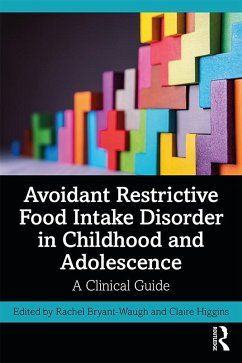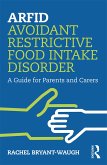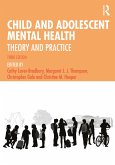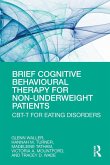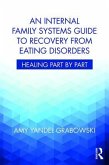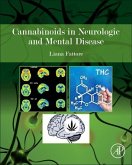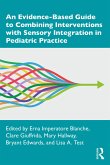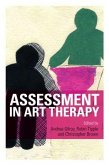Avoidant Restrictive Food Intake Disorder, more commonly known as ARFID, is a relatively newly introduced diagnostic category. Research in the field, although growing, remains limited, with clinical knowledge and expertise varying across clinicians. There may be uncertainty how to correctly identify and diagnose the disorder as well as how best to direct treatment.
This clinical guide sets out to be a trailblazer in the field, providing up-to-date information and comprehensive clinical guidance on ARFID in childhood and adolescence. Chapters in the book are divided into five sections, the first focussing on the importance of attending to the perspectives of those directly affected by ARFID. Three subsequent sections cover diagnosis and presentation, including chapters on aetiology, epidemiology, assessment, and outcome measures; clinical assessment, including psychological, family, nutritional, medical, and sensory components; and management, discussing nutritional, medical, psychological, and wider system approaches. The final section discusses prognosis and outcomes, and considers future research directions.
This clinically focussed book, with contributions from a multi-disciplinary authorship, is intended to function as an accessible, practical guide, and reference resource. It includes summaries of available evidence, with related recommendations for clinical practice. The advice and suggestions included will assist clinicians in targeting their attention appropriately, to ensure that children, adolescents, and their families receive the best possible care.
This clinical guide sets out to be a trailblazer in the field, providing up-to-date information and comprehensive clinical guidance on ARFID in childhood and adolescence. Chapters in the book are divided into five sections, the first focussing on the importance of attending to the perspectives of those directly affected by ARFID. Three subsequent sections cover diagnosis and presentation, including chapters on aetiology, epidemiology, assessment, and outcome measures; clinical assessment, including psychological, family, nutritional, medical, and sensory components; and management, discussing nutritional, medical, psychological, and wider system approaches. The final section discusses prognosis and outcomes, and considers future research directions.
This clinically focussed book, with contributions from a multi-disciplinary authorship, is intended to function as an accessible, practical guide, and reference resource. It includes summaries of available evidence, with related recommendations for clinical practice. The advice and suggestions included will assist clinicians in targeting their attention appropriately, to ensure that children, adolescents, and their families receive the best possible care.
"Disorders such as ARFID which sit at the interface of physical and mental health represent a challenge to patients and clinicians. The child who does not eat and seems unable to eat can be a testing and risky clinical problem. This accessible book is unique in making the challenge of diagnosis and treatment of ARFID surmountable. Experts from a range of disciplines describe and explain the disorder. Its outstanding strength is practical detail on psychological management - ensuring that clinicians get children and families on the road to recovery." - Professor Isobel Heyman, Consultant Clinical Psychologist, National, Great Ormond Street Hospital for Children, London
"This book is an excellent, comprehensive contribution to the field of eating disorders. Avoidant Restrictive Food Intake Disorder in Childhood and Adolescence addresses a challenging topic and I recommend this book, written by experts in the field, to multidisciplinary teams working in the area of eating disorders. Professionals and families will find answers to a broad range of topics: diagnosis and presentation; assessment; management; course, outcome, and future research directions. This book brings together available evidence very nicely." - Professor Kate Tchanturia, King's College London, Psychological Medicine/Consultant Clinical Psychologist, National Eating Disorder Service, South London, and Maudsley NHS Foundation Trust
"This book is an excellent, comprehensive contribution to the field of eating disorders. Avoidant Restrictive Food Intake Disorder in Childhood and Adolescence addresses a challenging topic and I recommend this book, written by experts in the field, to multidisciplinary teams working in the area of eating disorders. Professionals and families will find answers to a broad range of topics: diagnosis and presentation; assessment; management; course, outcome, and future research directions. This book brings together available evidence very nicely." - Professor Kate Tchanturia, King's College London, Psychological Medicine/Consultant Clinical Psychologist, National Eating Disorder Service, South London, and Maudsley NHS Foundation Trust

